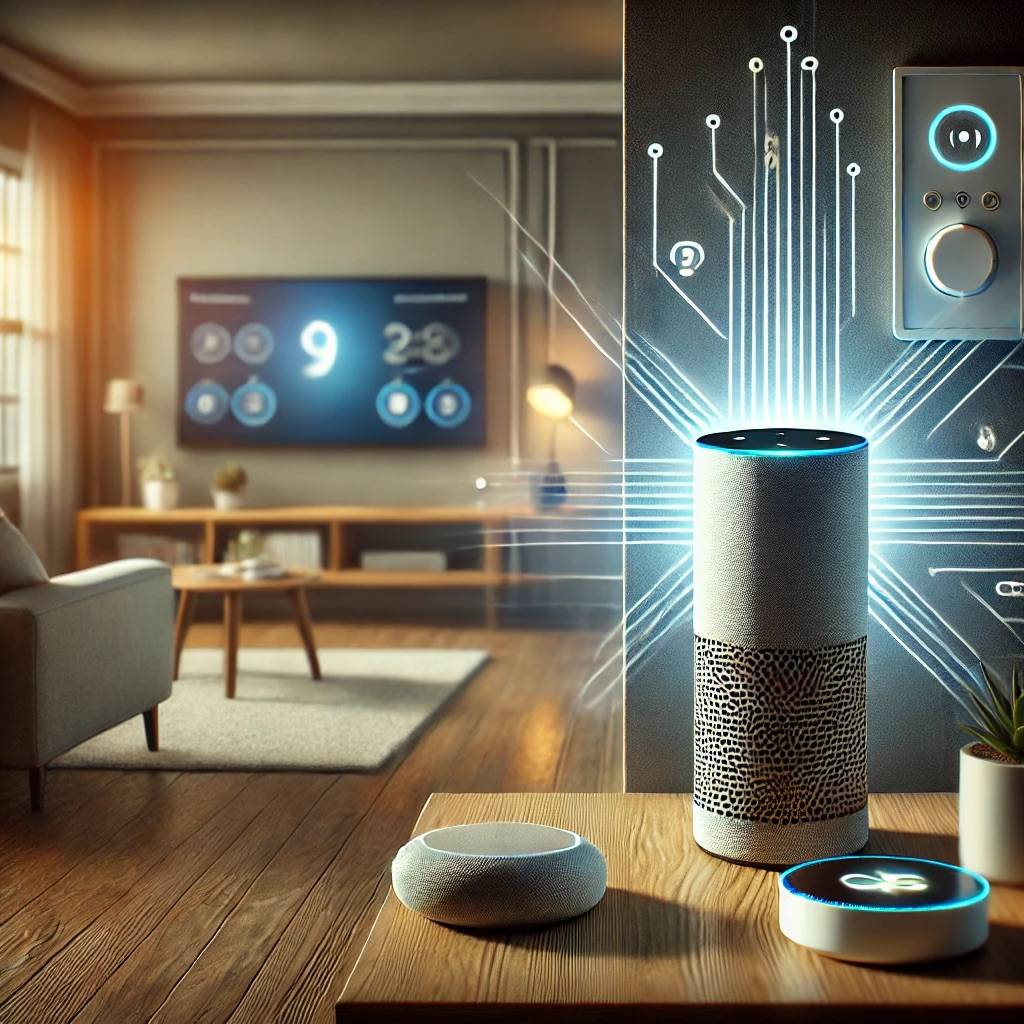In the age of smart homes and voice-activated assistants, we’ve welcomed an army of tech gadgets into our lives. Devices like Amazon’s Alexa, Google Home, and smart thermostats have transformed our homes into hubs of convenience. But with every “Hey Google” or “Alexa, turn off the lights,” we might be sacrificing something we can’t get back: our privacy.
Table of Contents
ToggleThe Hidden Cost of Convenience
You’ve likely heard the phrase “if something is free, you’re the product.” This rings especially true in the world of smart devices. Many of these gadgets are designed to listen, learn, and adapt to our needs. Sounds helpful, right? But what happens when those devices are listening to more than just your commands? What if they’re gathering more data than you realize?
Smart devices aren’t just passively waiting for your instructions—they’re always listening, analyzing your voice, your habits, and sometimes even your conversations.
Are They Always Listening?
Let’s break it down: Devices like Amazon Echo and Google Home are equipped with “wake words,” such as “Alexa” or “Hey Google,” which trigger the device to start recording and processing your request. But that’s not the whole story. To detect these wake words, these devices have to constantly monitor what’s being said around them. This means they are always listening, even if they aren’t actively recording—at least, that’s what we’re told.
Multiple reports have surfaced where users have claimed their smart devices responded to conversations they weren’t meant to hear. While tech companies claim this is rare and usually a mistake, the fact that it happens at all raises eyebrows.
What Data Are They Collecting?
Every time you use a smart device, you’re sharing more than just commands. You’re sharing your voice patterns, preferences, habits, and sometimes even more personal information, like your location. These devices are equipped with sophisticated algorithms that can map your daily routines. They know when you’re home, when you’re sleeping, when you leave the house, and even the kind of music or shows you enjoy.
That data might seem harmless at first, but here’s where it gets concerning: companies like Amazon, Google, and Facebook profit from data collection. They sell insights based on your data to advertisers, and, in some cases, share this data with third parties. This is why after you mention needing new shoes to a friend, you start seeing ads for Nike and Adidas on every website you visit.
But it’s not just about targeted ads. Some smart home devices are even capable of monitoring your energy usage, your voice tone, or even detecting how often you’re at home, potentially offering a profile of your behavior that’s valuable to insurance companies, government agencies, or cybercriminals.
The Shocking Part: Who Has Access to Your Data?
It’s not just tech giants who might have access to your information. In 2019, it was revealed that Amazon employs thousands of workers to review audio clips captured by Alexa devices to “improve accuracy.” Some of these clips included private conversations, leading to serious privacy concerns.
Even worse, these devices are not immune to hackers. In fact, they can be particularly vulnerable. A compromised smart device can give hackers access to not just your personal data, but your entire home network. Through poorly secured smart gadgets, a hacker could unlock your front door, disable your security system, or even monitor you through connected cameras.
How to Protect Yourself
This doesn’t mean you have to abandon your smart home setup entirely. But it does mean you should take a few key precautions to protect your privacy:
- Review Your Privacy Settings: Most smart devices offer customizable privacy settings. Go into your device’s settings and limit data sharing to the bare minimum. Turn off the microphone when it’s not in use.
- Delete Stored Data Regularly: Voice assistants often store your recordings by default. On Amazon Alexa, for example, you can delete these recordings from your history through the Alexa app.
- Be Smart with Smart Device Placement: Don’t place smart devices in areas where you have sensitive conversations, like bedrooms or home offices.
- Use Strong Passwords and Two-Factor Authentication: For any device connected to the internet, secure it with a strong, unique password and enable two-factor authentication whenever possible.
- Update Your Devices: Keep your smart devices updated with the latest firmware and software patches. These updates often include security fixes that make it harder for hackers to break in.
- Consider Using a VPN: A Virtual Private Network (VPN) adds an extra layer of security to your home network by encrypting your internet traffic. This makes it much harder for hackers to access your personal data.
Conclusion: Convenience vs. Privacy
The rise of smart devices has undoubtedly made life more convenient, but it’s important to understand the trade-off. These gadgets make our lives easier by learning from our behaviors, but in doing so, they are constantly gathering personal information. While tech companies reassure us that privacy is a priority, there’s always a risk when our homes are filled with always-listening devices.
As consumers, it’s up to us to be vigilant. Know what your devices are doing, understand the data they’re collecting, and take steps to protect yourself. After all, in the battle between convenience and privacy, the real winner should be you.




